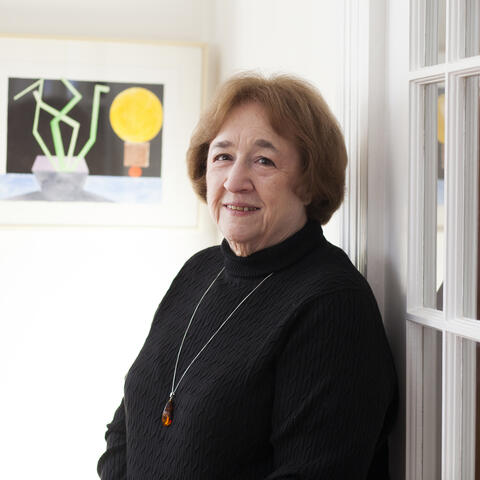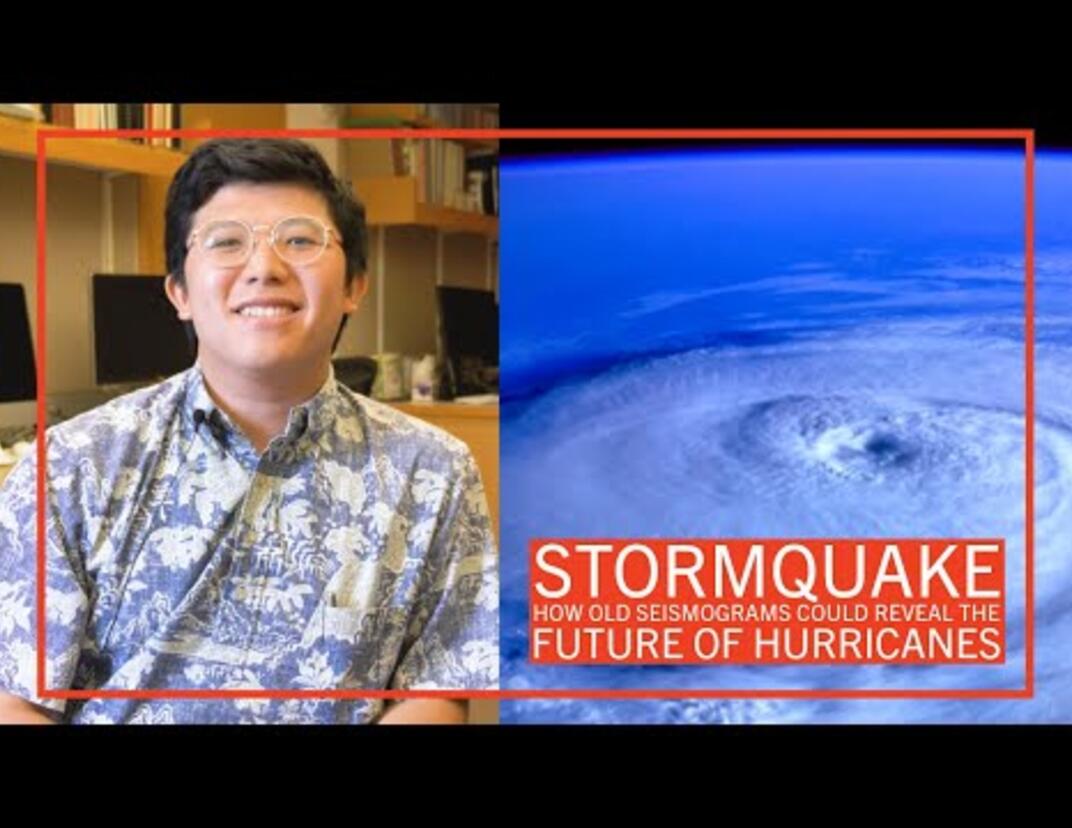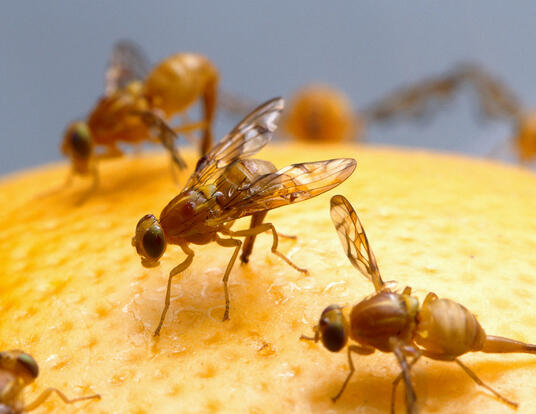Propaganda War
The authoritarian mobilization of history—and children—in Russia
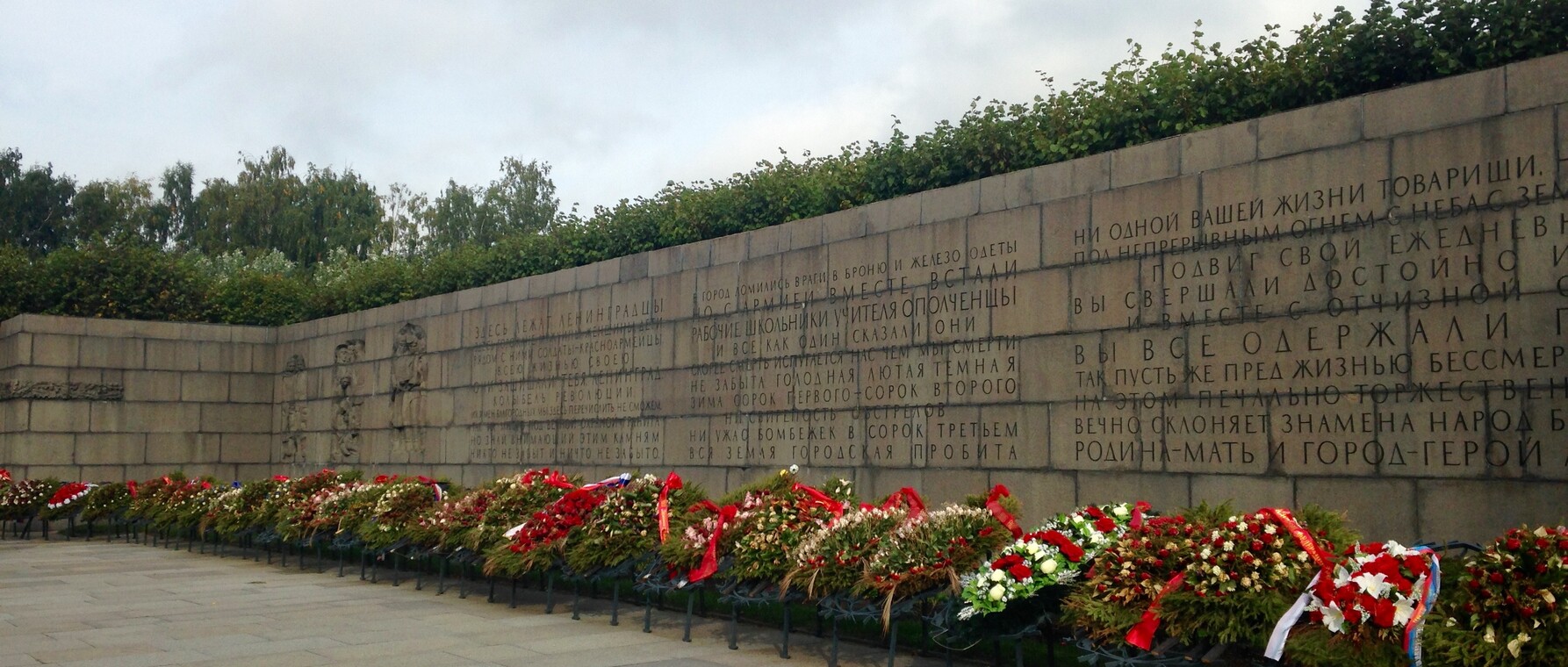
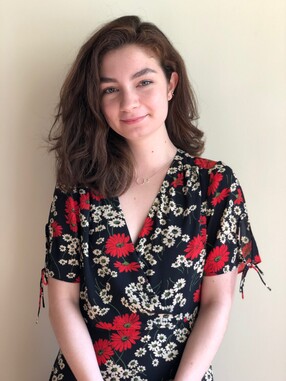
The current battles in the United States over how—or whether—to talk about issues like racism, gender, and sexuality in public schools have a lot in common with campaigns in Russia to revise the way World War II history is taught, says Sydney Stotter, AM ’22. There are important differences too.
“They’re both moral panics that have to do with children’s welfare,” she says. “One of the main differences is that in Russia, it’s a top-down phenomenon with the support of the government and President Vladimir Putin’s administration. In the United States, it’s manifesting more on a state-level case-by-case basis. It’s more of a bottom-up phenomenon.”
Stotter graduated from GSAS last May with a master’s degree in regional studies–Russia, Eastern Europe, and Central Asia. Her thesis, “Childhood Under Siege: The Evolution of World War II Education in Russian Memory Politics,” focuses on the way that politicians try to form narratives about history for their own political purposes.
“I’m specifically interested in the way that children are mobilized for this kind of political discourse, particularly the idea that kids are under threat of ideological indoctrination by ‘bad actors,’” Stotter says. “These can come from anywhere—within Russian society and political opposition or from Western politicians and governments trying to corrupt children’s understanding of the past. Either way, they’re promoted as a societal, existential threat.”
The Virus of Forgetfulness
World War II resulted in nearly twenty-seven million Soviet deaths—more casualties than any other nation in the conflict and about 14 percent of the USSR’s 1941 population. Not surprisingly, the war is a pivotal event in the history of Russia, the Soviet Union’s largest and most powerful republic. The country’s victory and perseverance in the face of unimaginable suffering are foundational elements of Russian identity. But Stotter says that, as survivors of the war dwindle, Russian officials have sought to take control of the historical narrative.
“There are fewer authoritative sources of historical knowledge, so now Vladimir Putin, Russia’s president, is saying ‘I’m the one who’s the expert on history, and so I can say that children are under threat by bad actors,’” Stotter says.
Stotter points to Putin’s words during a May 2021 meeting of the Victory Organizing Committee, which he chairs: "The virus of forgetfulness of course primarily affects—and makes its victim—young people. Unfortunately, our young people are brainwashed so that they often forget about the heroic feats performed by their ancestors, by those close to them. Moreover, they begin to worship those who killed their grandfathers and great-grandfathers." (Translation provided by Stotter.)
Such thinking is reflected in Russian educators’ emphasis on the Soviet Union’s heroic sacrifice in defeating Nazi Germany and fascism as a whole. While there is truth in this framing, Stotter says that Russian children aren’t getting the whole story about the war.
“The history very much glosses over how Soviet citizens were repressed during the war,” she says. “There was repression of Jews. There was repression of Poles. The Soviet army marched to Berlin and they caused many civilian deaths and other tragedies. That is completely denied now by Russia, which sees itself purely as a hero figure.”
Stotter says that Russian officials warn parents to control the information that their children receive, particularly on social media where, they say, those in the Western media try to misrepresent the Soviet Union’s role in World War II. Students and teachers who push back against the official stance on the war are scrutinized. In 2017, for instance, a high school student in the city of Novy Urengoy, Nikolai Desyatnichenko, wrote an essay saying that “not all Nazi soldiers were fighting for the cause, not all of them were fascists,” Stotter says.
There are fewer authoritative sources of historical knowledge, so now Vladimir Putin, Russia’s president, is saying ‘I’m the one who’s the expert on history, and so I can say that children are under threat by bad actors.’
-Sydney Stotter
“Some people blamed this kid, saying ‘He’s justifying fascism. He’s a neo-Nazi.’ But other people were saying ‘No, this is his teacher putting words into his mouth, and we need to investigate them.’ And Russian officials did investigate the school.” (Stotter says she is unaware of the fate of the teacher.)
A Justification for War
The revisionist history that is taught to Russian children about World War II is also a vehicle to justify the current invasion of Ukraine by Russia, says Curt Hugo Reisinger Professor of Slavic Languages and Literatures and Comparative Literature Justin Weir. Weir served as Stotter’s advisor and says that her thesis “illuminates how much of Putin’s historical revisionism and increased control of the media has been directed at young people and has taken place in the context of educational policy.”
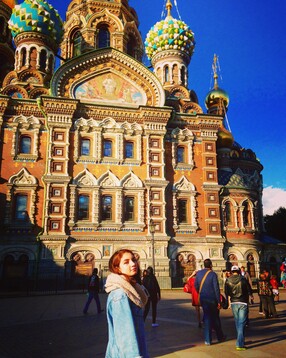
“Putin has repeatedly attempted to revise history and made false accusations about Ukraine, claiming that Ukraine was a creation of Bolsheviks, that it is not a ‘real’ nation, and that Ukrainians are fascists,” Weir says. Because of this pattern of revisionism, the current emphasis on teaching about World War II may seem like business as usual. But Weir says Stotter’s thesis reveals a new and sinister aspect of education policy in Russia.
“Official discourse about children in Russia ratchets up emotional fervor and encourages citizens to take action in defense of the innocent and vulnerable,” he says. “A politician supposedly acting on behalf of children is nothing new. What Stotter’s thesis demonstrates is that Putin’s historical revisionism and inflammatory posturing and propaganda are not politics as usual, intended for a domestic audience. They reflect Putin’s increased authoritarianism and, indeed, plans for war.”
While the moral panic around children’s education in Russia may now be centered on World War II, Stotter says there have been other hot topics in the past.
“An anti-LGBTQ law was framed as preventing the propagandizing of children, much like those we’re seeing proposed in some US states today,” she says. “There was also the ‘so called’ Blue Whale game, supposedly an online challenge that circulated on social media and encouraged children to complete a series of tasks that ultimately led to suicide. The story was fake—there never was a Blue Whale game—but it spread through Russian news. Its broader impact was to stoke fears about the internet.”
When the current panic over the ‘virus of forgetfulness’ has passed, Stotter believes, there will be others to take its place.
“I think at some point, the World War II rhetoric will reach a point where it loses its utility, but they’ll find something else to have a moral panic about, “ she says. “People are always kind of freaking out about what children are doing.”
Photos courtesy of Sydney Stotter
Get the Latest Updates
Join Our Newsletter
Subscribe to Colloquy Podcast
Simplecast Stitcher


